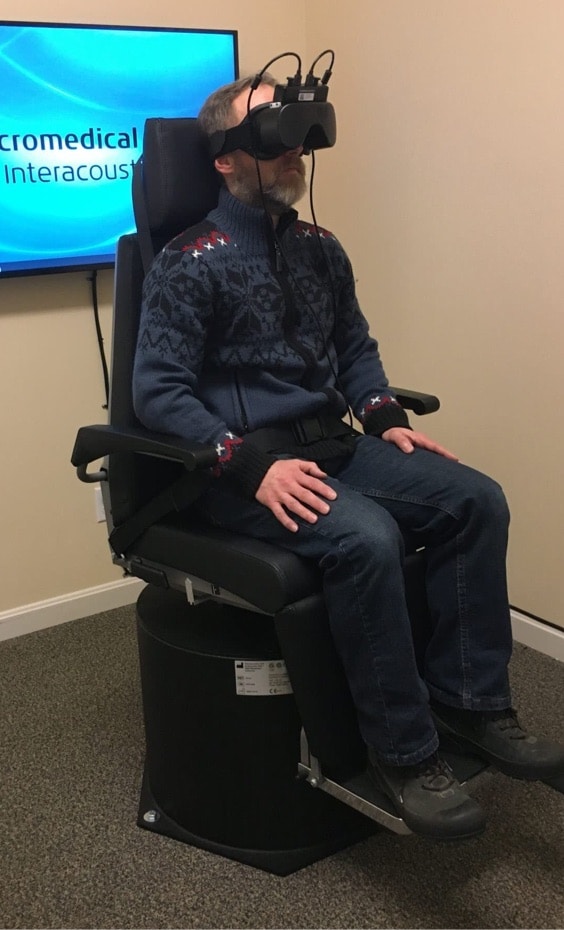
Audiology Center of Maine is the only provider in the state to offer rotational chair testing, a neurodiagnostic tool to help determine whether dizziness originates from the inner ear or the brain.
The purpose of rotational chair testing is to determine if the inner ear, known as the vestibular, or the neurological system is causing a balance disorder. When someone turns their head, the vestibular system sends continuous signals to the brain that update it on the head’s position. This causes additional signals to be sent to the muscles of the eyes via the vestibular ocular reflex (VOR). For every head movement in one direction, there is eye movement in the opposite direction. This phenomenon is the basis for the rotational chair testing.
Rotational chair testing can be very helpful in detecting bilateral loss (no function in both ears) of vestibular function or if there are cerebellar ocular motor abnormalities. In recent studies, many people with neurological problems or vestibular ocular reflex (VOR) have been diagnosed with the use of the rotary chair very successfully.
Rotational chair testing is usually ordered in addition to VNG testing to confirm a specific diagnosis and increase accuracy. This allows the audiologist to see precisely what head movement speeds are affected by the inner ear disturbance if a one is noted during the VNG testing exam. This cannot be achieved with any other testing procedure and ensures the audiologist an accurate diagnosis specific to the problem within the vestibular system. For the patient, that means personalized treatment options and better treatment outcomes!
The rotational chair is the gold standard in diagnosing bilateral vestibular loss, and is used to investigate whether dizziness may be due to a disorder of the inner ear or the brain.
For more information on rotary chair testing or to schedule an appointment, please contact Audiology Center of Maine at (207) 430-3714 or visit audiologymaine.com.
